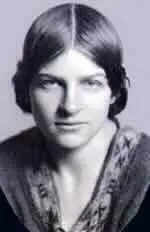On January 11, 1999 in Celtic History
Naomi mitchison, prolific scottish writer, died

Naomi Mitchison, (1 November 1897 – 11 January 1999) the prolific Scottish writer, died on January 11, 1999. She was known for her diverse body of work, which included novels, short stories, poetry, and essays. Often called a doyenne of Scottish literature, she wrote over 90 books of historical and science fiction, travel writing and autobiography.
Early Life
Naomi Mitchison was born on November 01, 1897, in Edinburgh, Scotland, into a wealthy and well-connected family. She was educated at home and developed a strong interest in literature from a young age.
Literary Career
Mitchison was a versatile writer who produced a wide range of works. Her writing covered various genres, including historical fiction, science fiction, children’s literature, and essays. She explored social and political themes in her writing.
Social and Political Activism
Mitchison was a politically engaged writer who advocated for a range of social and political causes, including feminism, pacifism, and communism. Her works often reflected her progressive and sometimes controversial views.
Historical Novels
She gained recognition for her historical novels, particularly “The Corn King and the Spring Queen” (1931) and “The Bull Calves” (1947), which explored the history and mythology of ancient Greece.
Science Fiction
Naomi Mitchison also wrote science fiction, with notable works like “Memoirs of a Spacewoman” (1962) and “Solution Three” (1975).
Feminism
She was an advocate for women’s rights and gender equality. Her book “We Have Been Warned” (1935) explored the challenges faced by women in a patriarchal society.
Longevity
Naomi Mitchison lived a long and productive life, and her writing spanned much of the 20th century. Her literary output was extensive, and she was a respected and influential figure in the world of literature.
Naomi Mitchison’s writings, activism, and commitment to social and political causes contributed to her legacy as a significant figure in Scottish and British literature. Her works continue to be studied and appreciated for their exploration of important themes and their engagement with the social and political issues of her time.
Related Content

Shane Patrick Lysaght MacGowan, lead singer of the Pogues, died

St Machar Day, patron saint of Aberdeen

Oíche Shamhna - Cetlic New Year Eve (Halloween)

ALBAN ELFED (Welsh Bardic name for autumn equinox)

Feast day of St. James

John Davie Burgess, King of the Highland Pipers, died at age 71.